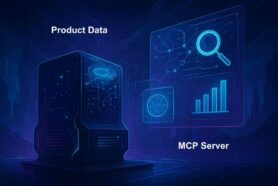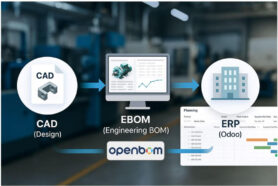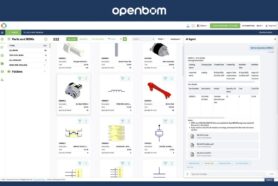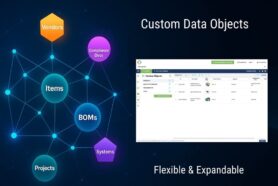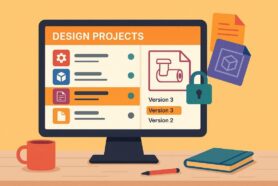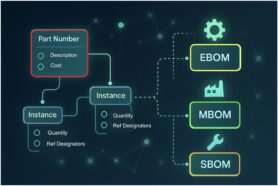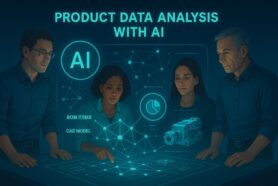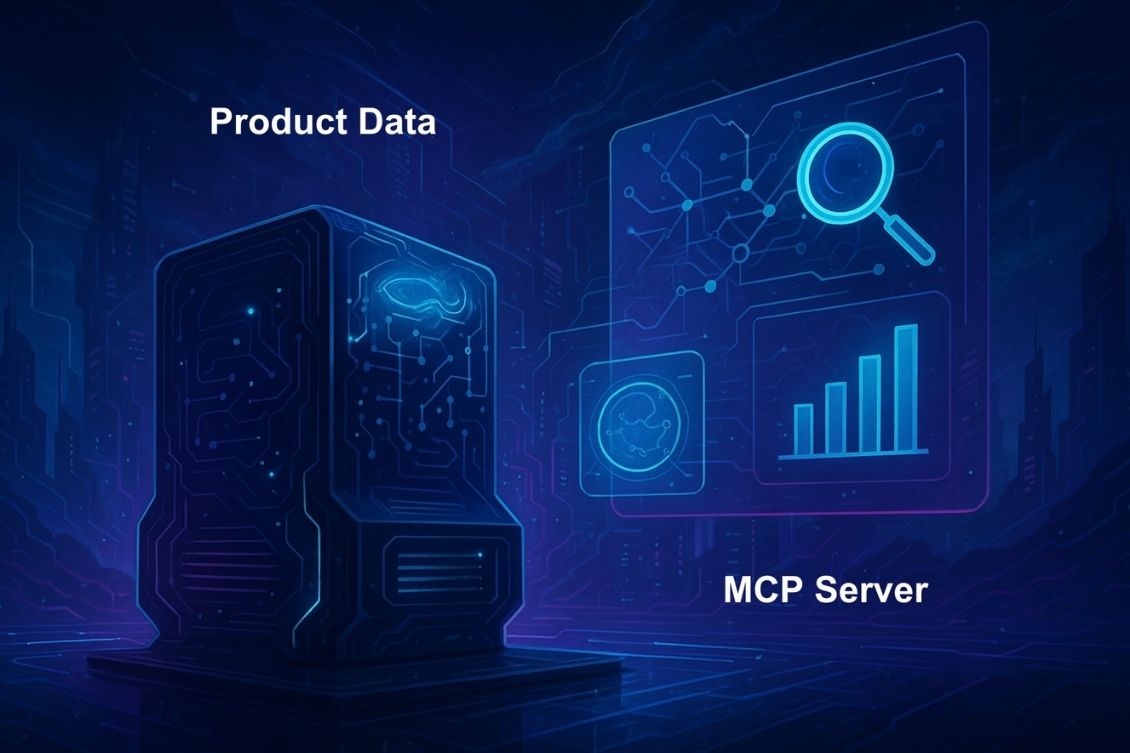
When we started the OpenBOM MCP (Model Context Protocol) journey a few months ago, our vision was clear: build a new kind of foundation for intelligent, agent-powered engineering workflows. It was—and still is—a bold vision. Instead of asking engineers to adjust their daily routines to fit around rigid software workflows, we want to bring intelligence to the data itself. We want AI agents to understand product structures, navigate complex models, and deliver insights in a way that feels natural, fast, and connected.
Over the last few weeks, I’ve been sharing progress updates, each one peeling back another layer of this transformation. If you’ve been following along, you’ve already seen how quickly things are moving. If you missed any of the earlier posts, here’s a quick recap to get you caught up:
- The press release announcing the Private Beta was the first milestone, opening the door for customers to join us on this journey.
- Update #1 introduced the “Super MVP”—our very first working prototype of MCP integrated with Excel.
- Update #2 showed how conversational chat and navigation could dramatically simplify the way you find and work with BOM data.
- The “Building in Public” blog shared a look behind the curtain at how we’re developing this technology step by step, openly and iteratively.
- And finally, the first video demo showed what it feels like to query BOM data conversationally through an AI agent—no filters, no menus, just asking questions in plain language and getting answers instantly.
Each of these updates reflects our guiding principle: MCP is not just another integration tool. It’s the backbone of a new way of working with product data. Instead of pushing files back and forth, or forcing everyone into a single rigid workflow, MCP makes product data accessible, searchable, and usable through AI agents that work in the background—almost invisible, but always there when you need them.
A Quick Reminder – AI Agent in Private Beta
Earlier this month, we made it official: the OpenBOM AI Agent with MCP support is now available in Private Beta. This announcement marked a turning point. It’s no longer just us building demos or showing prototypes—it’s about bringing customers into the loop, letting them experiment, and learning together what the future of AI-powered PLM should look like.
Private Beta is an important step for any technology. It’s when theory meets reality, when actual engineering teams put the system to work on real product data and real workflows. The feedback we receive during this phase shapes the product in ways no roadmap or whiteboard session ever could.
If you’re reading this and you feel the same excitement about AI agents in PLM that we do, I encourage you to reach out. We’re still welcoming customers into the Private Beta, and it’s an incredible opportunity to not only try the technology but to influence its direction. If you’ve ever wanted to help shape the future of engineering software, this is your chance.
Full Text Search
Let’s start with one of the new functions we’re releasing today: Full Text Search.
On the surface, “search” might not sound revolutionary. After all, every piece of software claims to have a search box. But in the world of product data, search has always been frustratingly limited. You usually need to know exactly where to look, or which field to filter, or which database table holds the information you need. It’s like searching for a book in a library where you first need to memorize the cataloging system before you can even start looking.
With MCP, we’re changing that. Now, you can simply type what you’re looking for in natural language. Imagine an engineer typing, “Show me all resistors with 10k tolerance used in the last two projects,” and instantly seeing the results—no filters, no configurations, no clicking through endless spreadsheets. That’s what Full Text Search is about. It’s not just a feature. It’s a different way of thinking about how engineers interact with data.
It turns the MCP server into a kind of “Google for product data,” and the AI agent becomes your guide, helping you ask better questions and find better answers. The combination of MCP’s structured graph model with the agent’s conversational interface creates something that feels almost magical the first time you see it in action.
Quantity Reporting
The second new capability we’re introducing is the Quantity reporting function.
Every engineer or project manager knows the pain of reporting. Whether it’s preparing a cost breakdown, a parts usage summary, or a compliance report, the process is usually the same: pull the data, copy it into a spreadsheet, clean it up, format it, and hope you didn’t make a mistake along the way. It’s time-consuming, error-prone, and, let’s be honest, no one enjoys it.
With the new MCP agent functions, reporting becomes a conversation. You can simply ask, “Generate a cost summary for the current BOM,” or “Give me a report of all parts with missing suppliers,” and the agent will do the heavy lifting for you. Because it’s built on MCP’s structured backbone, the reports are not just fast—they’re consistent, reliable, and tied directly to the live product data.
The difference is dramatic. What used to take hours of manual work can now be done in seconds. More importantly, it lowers the barrier to insight. Instead of waiting until the end of the week to prepare a report, engineers and managers can ask questions anytime, get instant answers, and make decisions faster.
The first report we bring to OpenBOM MCP is the Quantity Report – this is the most useful BOM report everyone needs to have in procurement. Create this report and send it to the procurement department, or (think forward) – to send it to the Procurement AI Agent.
A Closer Look – Watch the Video
Words can only go so far. To really appreciate what these new functions feel like, you need to see them in action.
That’s why we’ve prepared a short demo video showing both Full Text Search and Automatic Reporting in the context of MCP and the AI agent.
👉 Check the video.
The context is important. The agent understands what you’re asking, retrieves the right data, and presents it clearly. It’s a glimpse into a future where working with product data feels less like managing files and more like having a conversation.
What’s Coming Next
Of course, this is just the next step in the journey. MCP is a platform, and we are explaining OpenBOM MCP server and AI agent capabilities. So what’s next?
One of the areas we’re working on now is BOM Costing. Imagine being able to ask the agent, “What’s the total cost of this assembly if I switch supplier X to supplier Y?” and see the cost roll-up instantly. This kind of capability has enormous potential for procurement planning, design optimization, and early-stage tradeoff analysis.
We’re also developing BOM Validations—intelligent checks that ensure your BOM is consistent, complete, and ready for production. Think of it as a second set of eyes reviewing your data before it goes downstream. Missing supplier? Duplicate part number? Incorrect unit of measure? The agent will catch it and alert you before it becomes a costly problem.
These are not “nice to haves.” They’re essential steps in turning BOM data from a static list into a living, validated, and actionable asset. And with MCP, they can be delivered in ways that feel seamless and almost invisible.
Conclusion – Building Smarter, Invisible Workflows
Looking back at where we started with MCP and where we are now, it’s hard not to be excited. What began as a vision is quickly becoming reality. With each new function—whether it’s conversational search, automatic reporting, or upcoming costing and validation—we’re getting closer to a world where product data flows naturally, and engineers can focus on designing and building rather than wrestling with spreadsheets.
That’s the promise of MCP and AI agents. They’re not just tools. They’re enablers of smarter, more connected, and more invisible workflows. They take away the friction, reduce the noise, and let the intelligence of the system work in the background so teams can do their best work in the foreground.
We’re still at the beginning, and there’s so much more to come. But today’s update—Full Text Search and Automatic Reporting—is an important milestone. It’s another proof point that the future we’ve been imagining is not just possible, it’s already here.
Stay tuned, because the next chapters—BOM Costing and Validations—will take things even further. And if you want to be part of this story, don’t forget: the Private Beta is open, and we’d love to have you join us.
REGISTER FOR FREE and contact us to request a private beta of OpenBOM AI with MCP.
Best, Oleg
Join our newsletter to receive a weekly portion of news, articles, and tips about OpenBOM and our community.


